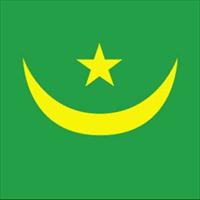MAURITANIA: Tourism industry suffers financial fallout after spate of attacks

Mauritania is facing financial fallout in the wake of three terrorist-related attacks between December and February, with the cancellation of the Paris-Dakar Rally, investors turning away, and the halving of tourist numbers.
“We were expecting 15,000 tourists this year, but we will find it difficult to reach even 6,000,” said Ba Madine, the Mauritanian minister of tourism. “The government is trying to figure out what to do about this crisis.”
The attacks included the murder of four French tourists near Aleg in southern Mauritania on 24 December 2007, followed by the killing of three Mauritanian military officers in the northeast of the country, and a machine gun attack near the Israeli embassy in Nouakchott in which three people were injured.
“On 23 December I employed 50 drivers and 23 guides. By 13 January, I had only 13, and by 27 January I called just four to work. These tragic events have turned Mauritania into a ghost town,” said Kadi ould Mehdi, director of Mauritanides Travel Company in Adrar, the most-visited region of the country.
The Azougi oasis lies 7 km from Atar, the regional capital, where charter flights fly directly from France between November and April. Khadija mint Ba, patron of the Medina hostel, usually houses up to 30 travellers at a time, but now she has only five.
“The situation is worsening by the day. I haven’t fired anyone yet, but if it continues this way I’ll be forced to.”
Financial fallout
The tally of the financial loss has not yet been calculated but is sure to hit northern Adrar region hard, where tourism is the biggest income source, according to Sall Seydou, the governor of Adrar. The cancellation of the Lisbon-Dakar rally alone led to losses valued at more than US$4.7 million, according to Cissé Mint Cheikh ould Beide, director at the tourism ministry.
Visitors brought in US$42.7 million to Mauritania in 2007, representing almost four percent of the annual budget.
But the impact also goes beyond tourism. “The economic fallout from these attacks touches on business investments in the country. Potential investors are starting to be scared off,” a diplomat who wishes to remain unnamed, told IRIN.
Easing tourists’ fears
To reassure potential visitors, the regional government is putting more police on the streets and setting up new road blocks on major roads. “Our best argument is to ensure that such events do not happen again,” Seydou told IRIN.
Westerners who live in Mauritania are doing their part to drum up interest. Despite dwindling numbers, Christian Neuville, a Frenchman who has worked in northern Mauritania for 15 years, recently opened a restaurant, ‘La Gazelle’ in Atar.
“I can assure you that since 1974 I have never had any problems here. This is a peaceful country... Tourists need to stop being afraid and return soon.”
Ould Beide remains upbeat. Her ministry is launching its own offensive, by financing a ‘Mauritania tourism week’ in Paris in May to attract visitors.
“This industry is fragile and is always subject to political or climatic changes. But these are only temporary shocks. It’s always possible to catch up.”
 Back and Next - Back and Next
Back and Next - Back and Next See Also - See Also
See Also - See Also